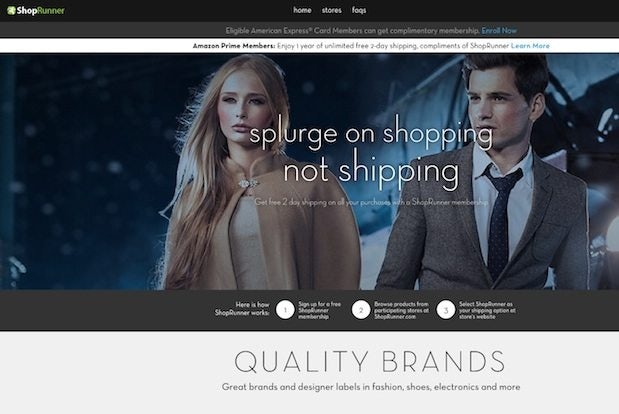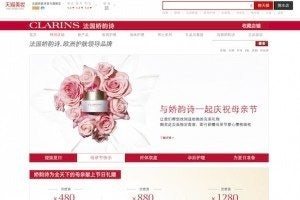
ShopRunner functions as an upscale version of America's Amazon or China's Tmall. (ShopRunner)
Alibaba’s Tmall may be the behemoth of B2C e-commerce in China, but its discount-oriented, mass-market business model has scared off one particularly image-conscious sector: luxury. Alibaba is now looking to cash in on this missing market with a new plan for U.S. e-commerce site ShopRunner to sell high-end American goods in China.
Alibaba has been on an American tech company buying spree to boost its standing for its recently filed U.S. IPO, but its ambitions for the expansion of new acquisitions stretch back to China. In addition to investments in U.S. luxury sites 1stdibs and 11 Main, the company bought a 39 percent stake in ShopRunner—which functions in the United States as a high-end version of Amazon Prime—in October last year. The investment will benefit from more than just the U.S. e-commerce marketplace: last week, ShopRunner announced that it will be partnering with Alibaba to sell goods in China.

Most foreign luxury brands have been reluctant to follow beauty's lead on Tmall. (Tmall)
The new partnership has been prompting comparisons between ShopRunner and Tmall, which boast similar platforms but different collections of brands. ShopRunner’s business model has also been compared to Amazon Prime because it offers free shipping on all items in exchange for a fee, but its “virtual storefront” setup is much closer to that of Tmall. On both Tmall and ShopRunner, retailers run their own shops and give the site a cut of the revenue.
ShopRunner is likely to compete with Tmall for the attention of foreign brands on the higher end of the market. As the largest B2C e-commerce site in China, Tmall’s market presence is massive, but international luxury brands have been wary of opening shops on the platform in fear of diluting their brand image. While some cosmetics brands such as Clarins and Clinique have Tmall shops, Burberry is the only foreign luxury fashion brand present at the moment after it announced its new Tmall boutique only a few weeks ago.
Meanwhile, ShopRunner’s upscale positioning has attracted retailers like Calvin Klein, Brooks Brothers, and Lord & Taylor. Thanks to the new Alibaba deal, the site will be able to expand into China without dealing with any of the logistics itself. When a consumer in China buys the product, it will be sent to a central U.S. location and then processed and shipped overseas by Alibaba, which has mastered the nuances of completing online delivery orders in China. The only downside is the fact that shipping costs from the United States will be high, meaning that ShopRunner’s China customers will likely be those searching for expensive, premium brands.
Alibaba has not yet commented on the specifics of the partnership, so it is yet to be seen whether or not ShopRunner and Tmall will end up in competition with one another. While Tmall hopes to lure more luxury brands to follow Burberry’s lead, some may never be willing to risk placing their logo among those for e-tailers selling cheap imitations—no matter how big the profits could be. Some of these companies may feel more comfortable on ShopRunner’s comparatively upscale platform, meaning that the site may turn into Tmall’s more sophisticated cousin in China. Regardless of what happens, Alibaba is clearly planning have a significant impact on China’s luxury e-commerce market in the years to come.